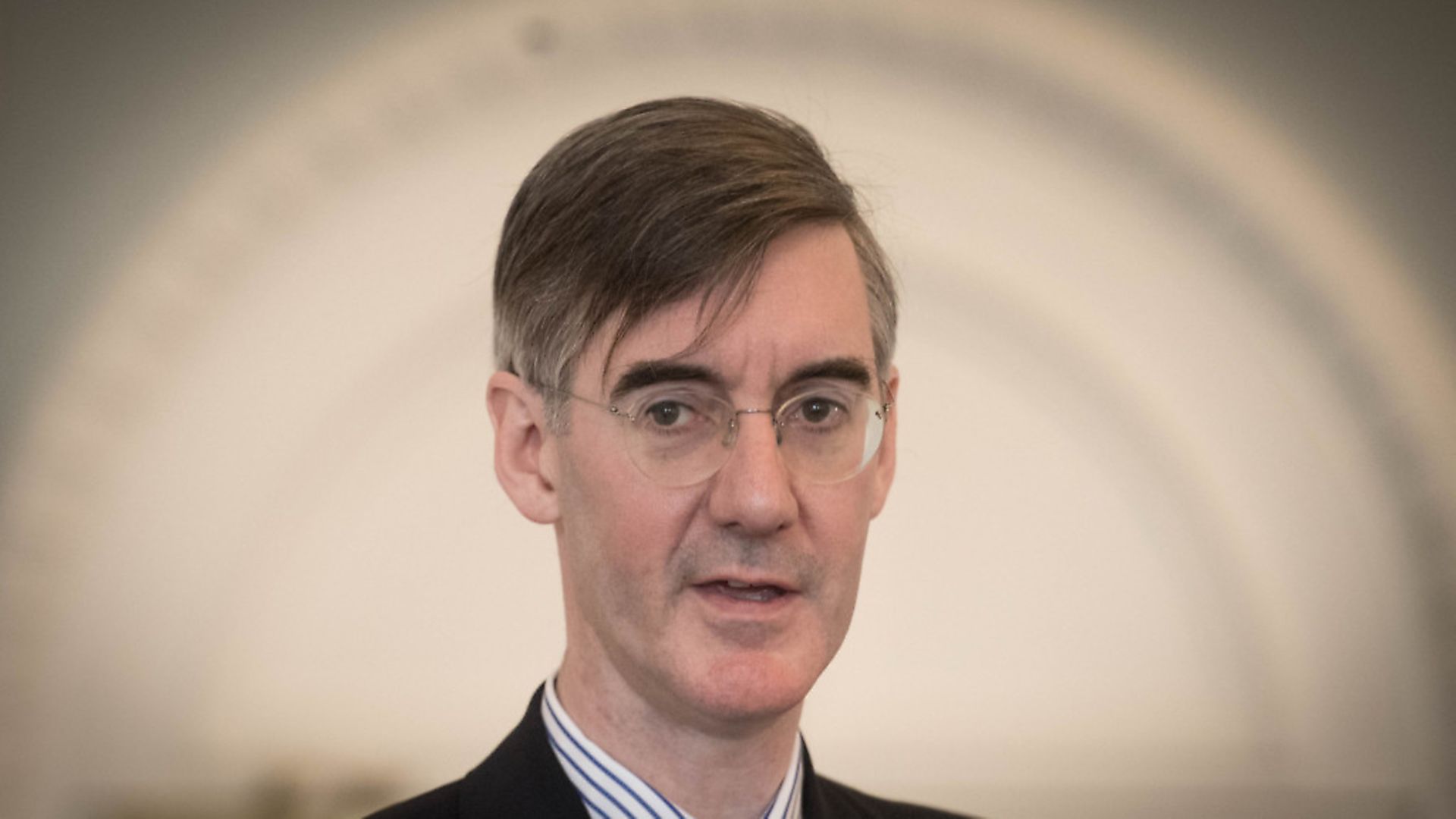
The European Research Group has issued a customs union ‘ultimatum’ to the prime minister ahead of a crunch Brexit war cabinet meeting.
Jacob Rees-Mogg and his band of Brexit hardliners delivered the dossier of threats detailing their opposition to the plan, developed by the PM’s representative in the Brexit talks, Olly Robbins.
May’s proposal – branded ‘cretinous’ by critics – for a customs partnership would see Britain collect tariffs on the EU’s behalf at ports and airports, passing on a share of the cash to Brussels.
Robbins believes the plan would avoid the need for a hard border in Ireland while keeping the UK out of the European customs union.
But ERG chairman Rees-Mogg mocked the idea as ‘completely cretinous, the silliest thing I could possibly think of… a betrayal of good sense’.
Downing Street has privately admitted that if the cabinet decide to push ahead with the partnership the ERG could collapse the government by sparking a leadership challenge.
Although the European Commission has said it wants a solution for the Irish border by its upcoming summit in June, there is no requirement on May to come to a final decision quickly.
She is expected to stave off potential resignations by keeping all options openn in the short term but this might not be good enough for the ERG.
Tory Brexiteers claim the scheme could indefinitely trap the UK within the EU’s customs arrangements, as well as being expensive and complicated to operate.
Former Brexit minister David Jones told Newsnight: ‘Certainly there would be a lot of very disappointed Brexiteers if we were to end up in a customs partnership.
‘The prime minister’s calculations have got to include exactly what reaction there would be from the parliamentary party and the wider Conservative Party if we were to enter into that sort of relationship.’
But Conservative former minister and Remainer Nicky Morgan said there were also ‘hard conversations to be had’ to get pro-European Tory MPs on board with any changes to customs arrangement.
‘What we are not going to do is make trade harder for the many businesses in this country, nor make peace in Northern Ireland something that we put at risk,’ she said.
Failure to come up with a solution could leave the UK forced to fall back on the European Commission’s backstop option, which would effectively draw a customs border down the Irish Sea.
May has insisted that no British prime minister could accept such a scenario. And it would infuriate the Democratic Unionist Party, whose MPs prop up the minority Conservative government in the House of Commons.
A survey for The Guardian found that public confidence in a successful Brexit negotiation has fallen to its lowest point since the question was first asked by pollster ICM in October.
Some 28% of the 2,026 people questioned between April 27 and 29 said the expected a satisfactory outcome, against 47% who did not. The overall confidence score of minus 19 was sharply down from the minus four recorded in December.
Warning: Illegal string offset 'link_id' in /mnt/storage/stage/www/wp-includes/bookmark.php on line 357
Notice: Trying to get property 'link_id' of non-object in /mnt/storage/stage/www/wp-includes/bookmark.php on line 37






